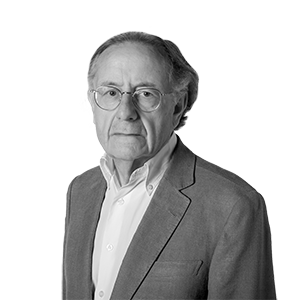The tyrant


Aristotle said that the tyrant's motivation is to enjoy himself, without any notion of limits and based on the presumption that everything is possible, that everything is permitted. Tyranny leads to contempt for others, especially for elites who do not comply with his designs. Always with the desire to cast a certain spell on the masses—today we call the working classes. The tyrant's shameless exercises in permanent exhibition are a consequence of this need to dominate the scene by mocking knowledge, wisdom, and free coexistence, presenting himself as the redeemer of a defenseless society. That's why I believe that right now the figure that best defines Donald Trump is that: the tyrant, who confirms an idea by Wystan Hugh Auden: "Good can imagine evil, but evil cannot imagine good." The tyrant ignores him, he ignores him. And "chaos is no longer the weapon of the insurgent, but the stage of power," as Giuliano Da Empoli, author ofThe magician of the KremlinThe declaration on the ninety days of tariff truce, which will be remembered as the one with the "kiss on the ass", definitely gives the stature of a character who raises questions about the limits of American democracy.
For Plato, the tyrant is the most unfortunate of men because "no one is more powerless than he who does not know how to master himself." Centuries pass, and the miseries of human experience remain. The ego of a character like Trump, who needs permanent overacting to exist, will be very small. And once again we should feel challenged by the fact that these experiences are possible in a system and a society with a democratic tradition. And in this context, a warning from Alexis de Tocqueville resonates in Democracy in America (1835): "What I find most repugnant about America is not the extreme freedom that reigns, but the few guarantees one finds against tyranny." Two centuries later, Trump will have crept through these cracks detected by the French viscount.
Europe continues to follow the Trump spectacle with a small mouth, with appeals for moderation that sound more like impotence than conviction, at a time when authoritarianism dominates the scene. Trump has fallen into the trap of the autocrat Putin, who has completed the transition from Soviet totalitarianism to savage neocapitalism and is playing with the American president, offering him sweets that he never ends up giving. And China, emerging from the darkness, is consolidating itself as an alternative power—economic and technological—managing Trump to canonize it with his peculiar exercise in fireworks that was supposed to lead him to dominate the moment and, for the moment, has brought the noise home. Every day brings with it another episode of the indecent, permanent display of insolence, which is already beginning to bother even those who detached it.

